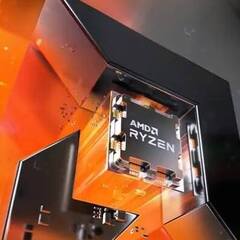M.2 NVMe SSD uses wrong transfer mode?
Go to solution
Solved by ygrabo,
UPDATE
Gigabyte tech support has confirmed that the drives SHOULD run at the speeds I expected, i.e. x4 in the second M.2 slot (via chipset) and x2 in the PCIe slot with M.2. to slot adapter.
They therefore presume something is broken and asked me to return or RMA it.
I just installed an X570 board... everything is speedy.
-
Topics
-
0
-
jordanbuilds1 ·
Posted in CPUs, Motherboards, and Memory1 -
IDuki ·
Posted in Storage Devices1 -
8
-
WolfiVR ·
Posted in Troubleshooting0 -
4
-
hanouzz ·
Posted in New Builds and Planning1 -
fade2black001 ·
Posted in Troubleshooting0 -
4
-
Emily Young ·
Posted in LTT Releases14
-

















Create an account or sign in to comment
You need to be a member in order to leave a comment
Create an account
Sign up for a new account in our community. It's easy!
Register a new accountSign in
Already have an account? Sign in here.
Sign In Now